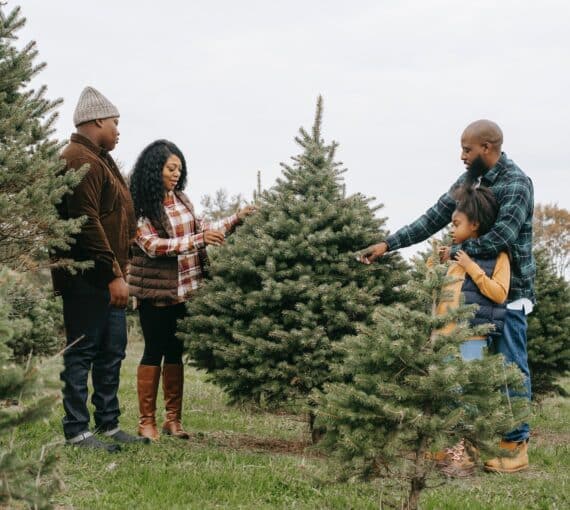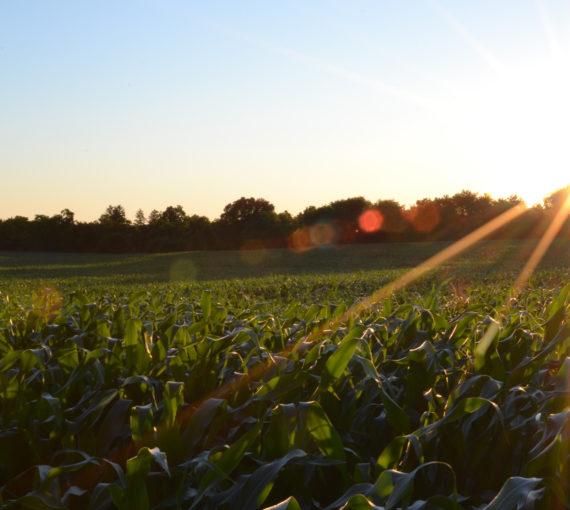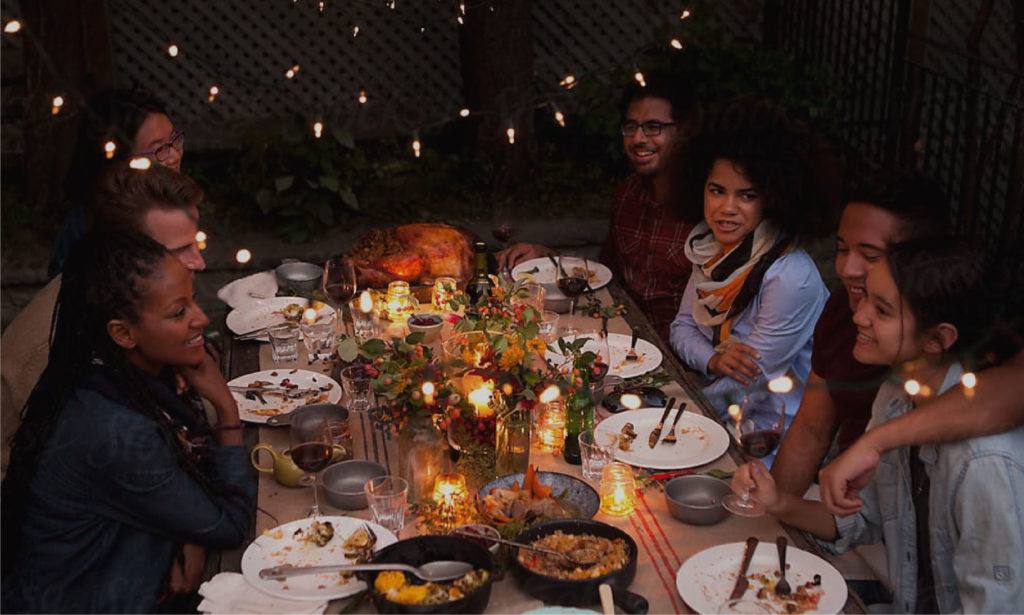
The best of the holidays comes from the wealth we create through relationships — to ourselves, to each other and to nature!
Although they’re full of merriment, holidays can also be a time of unnecessary excess. Make them about family, friends, food and fun — not stuff!
Holiday environmental impact
Waste
During the concentration of cultural celebrations between late November and early January, household waste increases by more than 25 per cent from extra food waste, packaging and items trashed when replaced with newer versions received as gifts. According to the U.S. Environmental Protection Agency, the result is more than one million more tons per week in landfills throughout North America.
Energy
Research from the Center for Global Development estimates that holiday lights use 6.6 billion kilowatt hours of electricity per year.
Travel
The holidays are one of the busiest travel periods of the year and all that movement adds up. Increased travel boosts greenhouse gas emissions that contribute to climate change.
Personal holiday impact
For many folks, holiday frenzy causes stress and anxiety. This is where mindfulness comes in! Spending time in nature, even in small doses, has profound power to restore well-being. Take a break to stroll in a park, savour the sunset or breathe deeply in the fresh air.
Spending extended periods of time with family can also resurface strained relations, especially when sensitive discussion topics and differing opinions come up. It can be distressing when we don’t agree on things that matter to us. Learn how to find common ground and have conversations that decrease divisiveness and help cultivate empathy from our guide for navigating difficult climate conversations.
Personal spending also goes up during holidays. In uncertain economic times, people crave connection and are more concerned about money and skeptical about spending. Fortunately, alternatives to overconsumption can help you save money, reduce your impact on the planet and build deeper, more meaningful relationships with the people you love.
Earth-friendly ways to celebrate
Here are some tips to maximize festivities while minimizing environmental impact.
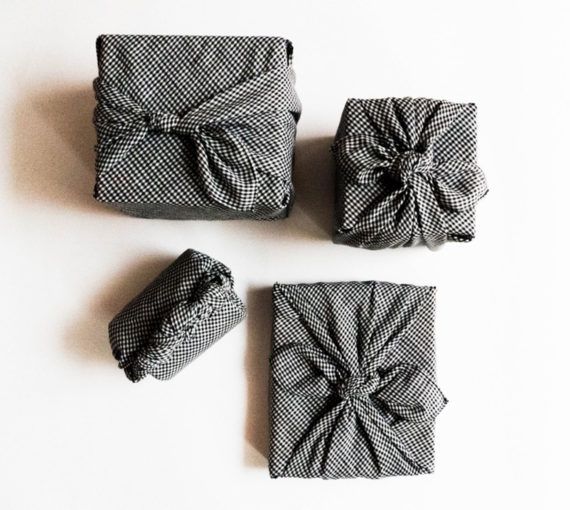
Gifts and wrap
Show gratitude with “green” gifts for holidays, birthdays, weddings, anniversaries, graduations, in sympathy or celebration or just because! Give a waste-free, nature-loving gift or ask for “presence” instead of “presents.” Learn how to gift and wrap without purchasing things new.

Cards
- Send an e-card to save paper and postage. Personalize them by adding pictures, music, graphics and/or video messages.
- If you love writing letters or notes in cards, make them yourself. Use paper you already have or buy products made from 100 per cent recycled paper that’s high in post-consumer fibre, printed with vegetable ink and not bleached with chlorine.
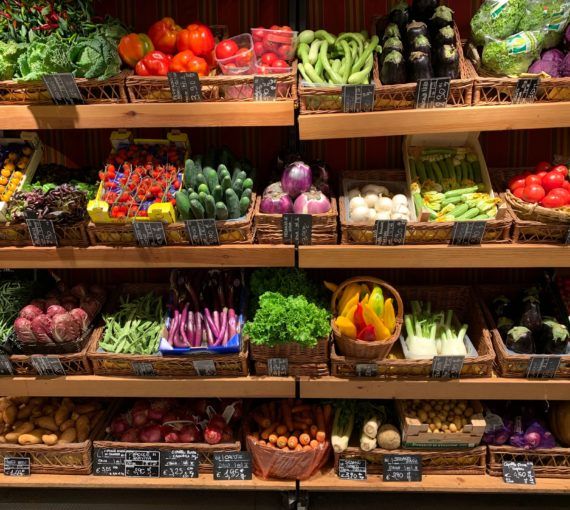
Food
Never underestimate the importance of food, ritual and the power of community!
- Choose local, organic, seasonal products whenever you can. Visit farmers markets, natural food stores, zero waste shops, bulk and refill shops, co-ops and/or your garden.
- If you can, eliminate meat. If you’re eating meat, eat less and buy what’s local and ethically raised.
- Sip on sustainability. For those who partake, opt for “green” spirits, beer and wine.
- Eliminate food waste. Shop smarter, find creative uses for food scraps and send leftovers you won’t eat home with guests.
- Avoid disposables. Ditch tinfoil and plastic. Opt for reusable beeswax food wrap, stainless steel or glassware for leftovers.
- If you don’t have enough reusables, encourage guests to bring their own!
Learn more about the impacts of food choices on climate change

Decorations
- DIY with what you already have at home — tablecloths, cloth napkins, fabric scraps or unconventional materials. Search online for DIY ideas!
- Borrow or swap with friends and family or through a buy nothing group.
- Mine thrift stores.
- See if there’s a rental company where you live.
- Forage from nature what you can harvest responsibly — stones and rocks, branches, leaves, pinecones, fruits, flowers and berries. (Remember: never take more than one-third for yourself — leave one-third for other species and one-third to maintain natural lifecycles.)
- Store your decorations to reuse year after year! If you celebrate Christmas and plan on putting up a tree, consider shopping from a local, organic tree farm, renting an artificial one, buying a live tree you can replant outside or an indoor potted pine you can keep year-round. You could even make one using fallen branches or unconventional materials!
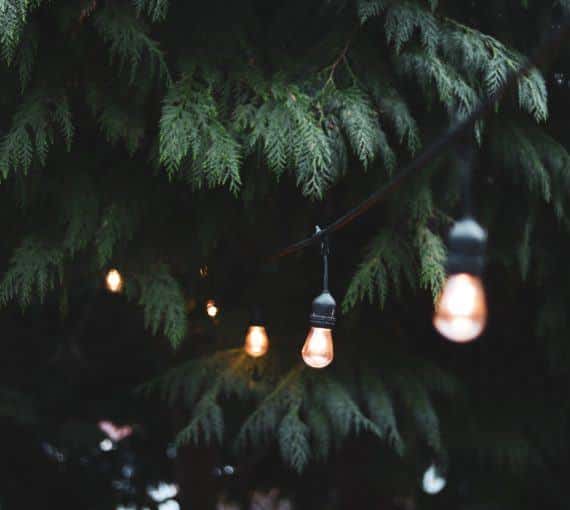
Lights and sounds
- Choose LED lights. They have a longer life span and use less energy, only about four watts per strand. Regular lights use about 34 watts per strand.
- Use a timer so your lights are only on when needed. Turn them off whenever possible!
- Properly recycle old incandescent lights.
- Keep the sky dark. Many plants, insects and other wildlife rely on darkness to forage, breed and navigate. Point lights downward and/or use red lights. (Red light is less obtrusive than traditional white light, and helps to retain your night vision.)
- Use locally made beeswax or soy candles. Conventional candles are made from paraffin wax, which comes from petroleum, coal or oil shale and can be toxic.
- Avoid fireworks. When they explode, released metallic compounds can cause cancer or be otherwise toxic to humans and animals. They fall back on the ground, contaminating soil and water. The particulate matter in smoke is hazardous to people with asthma or other respiratory and cardiovascular conditions. The sound can be damaging to hearing and cause panic in wildlife, pets and (often already traumatized) people. Celebrate with paper lanterns instead!
- Bang pots and pans, ring bells, play instruments and sing!

Energy
- Turn down the heat before people arrive. You’ll save energy and your guests’ extra body heat will warm up the room.
- Still not warm enough in colder seasons? Serve warm foods and beverages, utilize residual heat released from your oven or stovetop while cooking or provide blankets to cosy up with loved ones!
- In warmer seasons, avoid using the air conditioner or running fans by cooling the people not the space. Serve cold drinks and food, close blinds and curtains, use fewer appliances or celebrate outside in a shady spot.
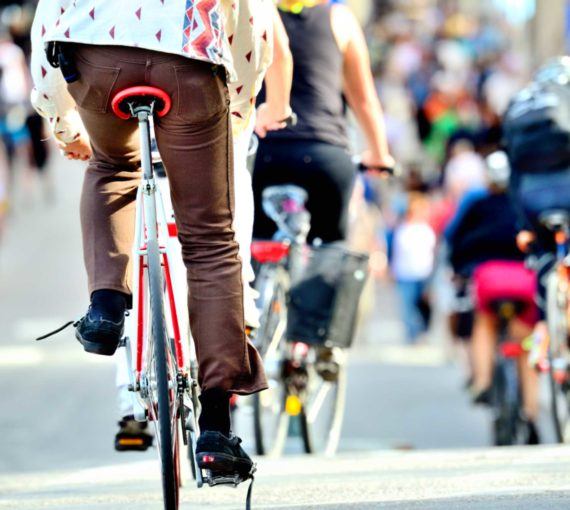
Travel
- If loved ones live across distances, reduce travel miles by choosing a central location to come together.
- Make cleaner, greener transportation choices. Opt for active modes of transportation (e.g., walking, cycling, rolling), public transit or shared electrified travel.
- If you must travel by air, fly economy, take direct flights, fly during daytime, choose airlines carefully and stay at your destination longer.
The best of the holidays comes from the wealth we create through relationships — to ourselves, to each other and to nature!
Happy holidays!

